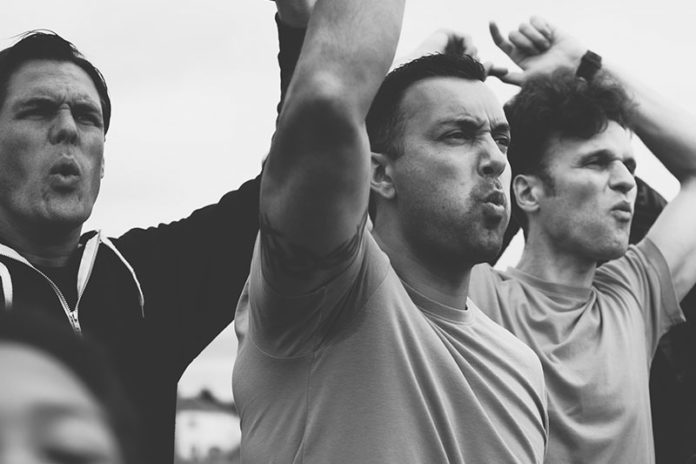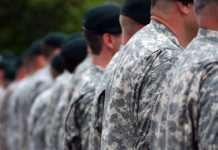The people who have rallied in Chicago and elsewhere to protest stay-at-home orders and business shutdowns are big proponents of freedom. They claim their right to assemble has been violated, along with their right to earn a living and enjoy their normal lives.
One sign at the May 1 protest said, “Give me liberty or give me COVID-19.” Another said, “Freedom is essential.” There were flags warning, “Don’t tread on me.” The protesters, like those in lots of other places, were demanding the right to go about their lives as they choose, even if it means contracting the coronavirus and giving it to others.
The restrictions are a burden on personal freedom. But they are appropriate for a pandemic that has already killed more than 83,000 Americans, is killing 2,000 every day and would have killed far more without the protective rules.
The rallies don’t represent public opinion. Three out of four Americans prefer to “keep trying to slow the spread of the coronavirus, even if that means keeping many businesses closed,” according to a recent Washington Post-Ipos poll.
The great majority of people understand that limitations that would normally be intolerable are justifiable in an emergency. No one, after all, objects to curfews and National Guard deployments in cities wrecked by hurricanes, floods or earthquakes.
During World War II, Americans accepted government-imposed rationing of food, coffee, rubber and gasoline. They accepted the president’s authority to seize factories where strikes impeded production. Washington dictated wages and prices.
Millions of men were drafted and sent into harm’s way. Liberty was curtailed for years in order to protect the nation and its people from foreign foes. Some of the infringements were unwarranted, notably the mass internment of Japanese Americans. But most were necessary.
Today, the enemy is within our borders, and it poses a lethal danger to every American. So there is an urgent need for temporary restrictions on what we can do. That way, the maximum number of people can survive to enjoy the freedoms they will regain once the pandemic subsides.
The protesters pretend that the threat is minimal, or that the whole crisis is a plot to turn America into a giant gulag. (One Chicago sign: “This is a dry run for communism.”) They insist they should be free to make their own choices on matters that affect their health.
There are deep flaws in that line of thinking. First, it ignores the danger to innocent people from those who get infected from selfish actions — congregating with large numbers of people, refusing to wear masks and shunning social distancing. The right to drink, which risks one’s own health, does not confer a right to drive drunk, which risks the lives of others.
The protesters may discount the damage this virus can do. But law enforcement agencies spend untold resources each year arresting and prosecuting drivers impaired by alcohol — who were to blame for 10,511 deaths in 2018, fewer than COVID-19 will kill this week.
The chances the protesters take with their own health will also put a burden on the public at large. If Florence and Freddie Freedom go to a crowded rally, restaurant or store, they get the pleasure of the outing, while the rest of us get none. But if they contract the virus from that exposure, most of the financial and other costs will fall on others — taxpayers, insurance companies, hospitals, doctors and nurses.
Having rolled the dice with this disease, the defiant ones will expect others to cover their losing bet. Not only that, but they are likely to transmit this potentially lethal virus to people who have done nothing to deserve it, inflicting yet more pain on the prudent majority.
If they were faithful to the logic of freedom, the protesters would commit publicly to accept the consequences if they get the disease, refusing all treatment. But don’t expect them to do that. They show no desire to grant the rest of us the freedom to let them suffer and die from the destructive choices they make. It’s heads they win, tails we lose.
Thomas Jefferson said: “It does me no injury for my neighbor to say there are 20 gods or no God. It neither picks my pocket nor breaks my leg.” The same can’t be said of those defying the pandemic restrictions. Their behavior will pick our pockets and risk our lives.

































